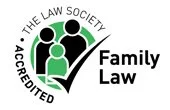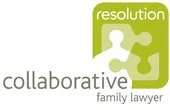




Collabrative Law and Round Table Meetings
The collaborative law process is a relatively new way of dealing with family disputes. Each person appoints their own lawyer but instead of conducting negotiations between you and your partner by letter or phone you and your respective lawyers all meet together to work things out face to face.
Each of you will have your lawyer by your side throughout the process and so you will have their support and legal advice as you go. If you choose this option for your divorce, make sure your lawyer has had Resolution training in collaborative law. Julian McEvoy of our family department has had this training.
Collaborative lawyers sign an agreement with you that disqualifies them from representing you in Court if the collaborative process breaks down. That means they are absolutely committed to helping you find the best solutions by agreement, rather than through conflict.
Sometimes only a couple of meetings are needed, on other occasions four or five. These meetings follow agendas set by you and your former partner.
Once an agreement is reached, your lawyers will put it into effect. The divorce can be finalised and a Consent Order sent to the Court for approval.
If you are nervous about signing an agreement that may prohibit your lawyer acting for you if the Collaborative process breaks down then an alternative choice may be to consider holding a series of Round Table Meetings. This format is the same as above save that you do not enter into an agreement and your lawyer can continue to represent you if the negotiations prove unsuccessful. Both Samantha and Julian can represent you at such meetings.
If these matters effect you please complete a contact form or call us directly on 01483 302 000 or email julian.mcevoy@www.rhw.co.uk or samantha.jago@www.rhw.co.uk







